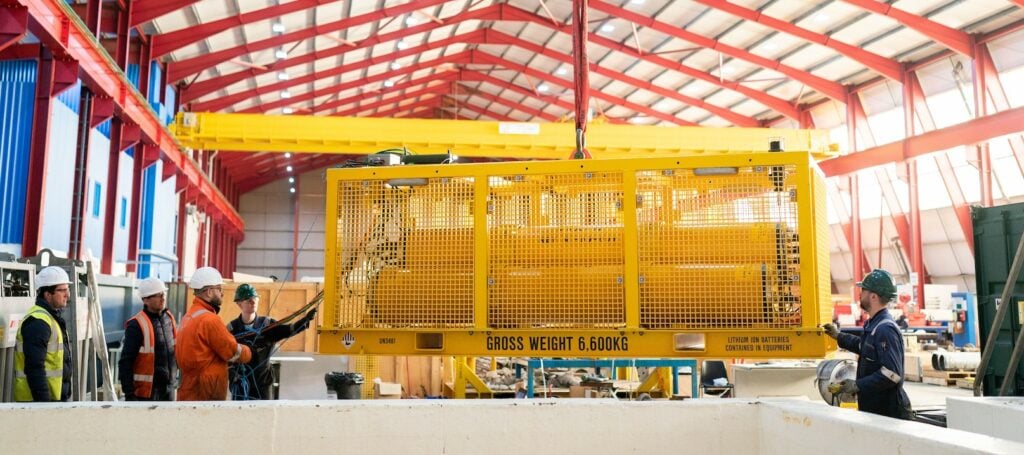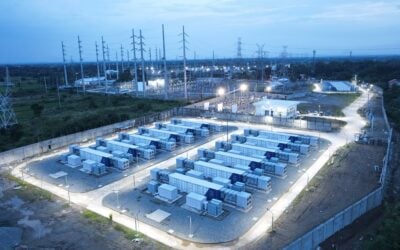
A lithium-ion battery energy storage system (BESS) engineered to be installed underwater will be paired with small-scale wave energy converters in a trial supported by the US Department of Energy (DoE).
Scotland-headquartered company EC-OG makes the subsea BESS, called Halo, which will be put through its paces at the US Navy Wave Energy Test Site off the coast of Oahu, Hawaii. The test facility has been open since 2004 and is collaboratively run by the DoE, Navy and Hawaii’s Natural Energy Institute and its National Marine Renewable Energy Center.
Enjoy 12 months of exclusive analysis
- Regular insight and analysis of the industry’s biggest developments
- In-depth interviews with the industry’s leading figures
- Annual digital subscription to the PV Tech Power journal
- Discounts on Solar Media’s portfolio of events, in-person and virtual
From this quarter, Halo will be integrated into an Autonomous Offshore Power System (AOPS) trial, which will use wave energy equipment made by Columbia Power Technologies (C-Power).
AOPS offers power and energy storage capabilities as well as real-time data and communications to enable full-time running of offshore operations like subsea vehicles, sensor systems and other marine equipment.
C-Power’s CEO Reenst Lesemann said that the combination of his company’s SeaRAY wave converters with EC-OG’s BESS will change the ocean from “a power desert to a power and data-rich environment for customers who are ready to unleash a wave of innovation in the ocean economy”.
According to C-Power — not to be confused with commercial and industrial (C&I) energy management company CPower — the energy storage system will be 2kW / 55kWh. It will be tethered to and used to power an autonomous underwater vehicle made by Saab in a six month trial.
EC-OG said in a release sent to the site that the Halo technology is modular and scalable and can be integrated with marine renewable energy systems at low cost. The company was founded in 2013 with the aim of decarbonising offshore operations and its team has multi-disciplinary expertise from the offshore oil and gas, as well as renewable energy, industries.
Other partners in the trial include marine imaging and monitoring group BioSonics and underwater sensor manufacturer Franatech.
At an onshore trial currently underway in Scotland, vanadium flow batteries made by Anglo-American manufacturer Invinity Energy Systems are being paired with tidal power generation and electrolysers to produce green hydrogen.






